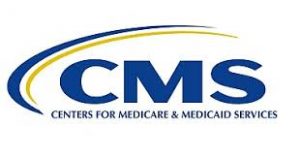 Once in a while “yesterday’s news” is also tomorrow’s news. Earlier this year you probably heard or read that Medicare is now authorized to negotiate prices directly with drug manufacturers. It’s not a blanket permission to negotiate; it’s focused on single source, patented drugs that may be prescribed for older adults. When drugs go generic, there is competition which generally brings prices down for the consumer, but “single source” is simply code for the company that won the race to be patented gets to pretty much set the price of the “new” drug.
Once in a while “yesterday’s news” is also tomorrow’s news. Earlier this year you probably heard or read that Medicare is now authorized to negotiate prices directly with drug manufacturers. It’s not a blanket permission to negotiate; it’s focused on single source, patented drugs that may be prescribed for older adults. When drugs go generic, there is competition which generally brings prices down for the consumer, but “single source” is simply code for the company that won the race to be patented gets to pretty much set the price of the “new” drug.
I put the “new” in quotes, because it’s not always a truly novel medicine; it may be a combination of two or more existing drugs that can work well together to manage a medical condition like hypertension or HIV or others. This is a welcome relief to older Americans, many of whom are on fixed incomes.
A study released just this past week by AARP looked at the top brand name 25 medicines with the highest spending among Part D drugs. They’ve more than tripled since their entries into the market, and they did not start out cheap. We all hear monthly reports on the consumer price index (CPI) and howl a bit when gasoline goes up 32 cents (8 percent) a gallon. Many of these new drugs didn’t start at four dollars per unit as gas may have. Their market entry price has often been in the hundreds of thousands of dollars a year.
But all of this restraint by way of CMS’s negotiations will be resulting in howls of “unfair” from drug manufacturers, some calling this move “extortion” to their industry. And we’ll probably be hearing the howls for a while as the negotiations are slated to occur this year into 2024. The negotiated prices will not take effect until 2026, but we are off to the races.
If you have an older adult in your family or you, yourself, qualify for Medicare, you have a home work assignment. Look to your loved one’s or your own medication list to see what the list price is for any of your branded meds. Be prepared to perhaps even drop a letter or a call to your federal representative to see where they stand on the new authorization. If they backed it when it moved through congress to become law, thank them. If they hedge on the issue or just admit they did not support the bill, ask them why. Being an active citizen just might turn out to be really good for your health!
Charlotte Bishop is an Aging Life Care Advisor, Geriatric Care Manager and founder of, certified professionals who are geriatric advocates, resources, counselors and friends to older adults and their families in metropolitan Chicago. She also is the co-author of How Do I Know You? A Caregiver’s Lifesaver for Dealing with Dementia.






